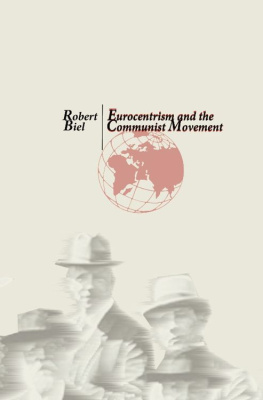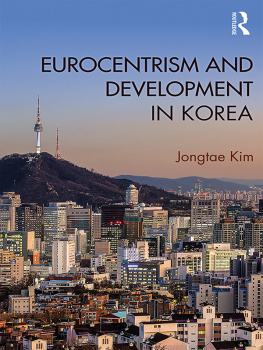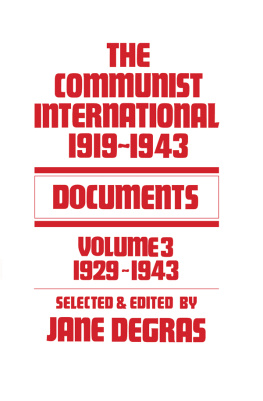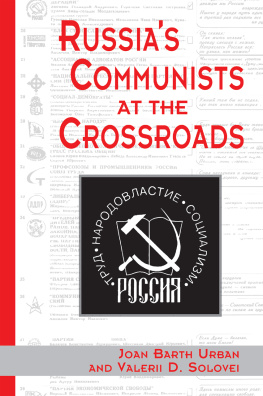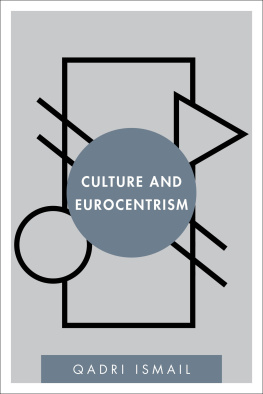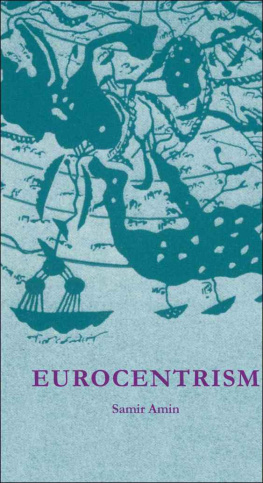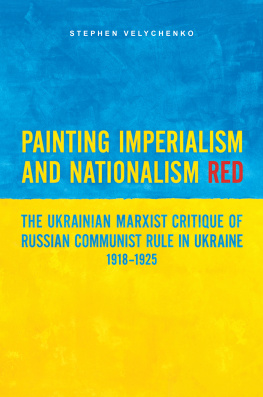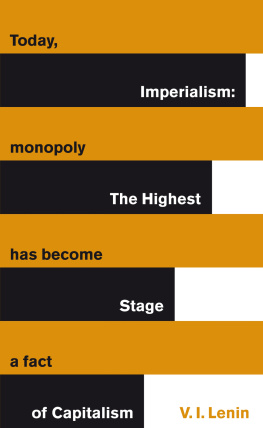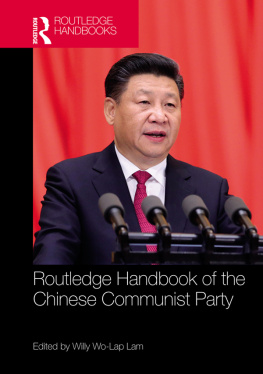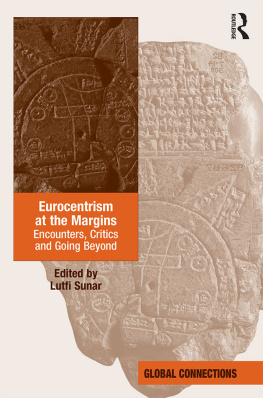Table of Contents
Eurocentrism and the Communist Movement, by Robert Biel
ISBN: 978-1-894946-73-5
Copyright 2015 Robert Biel
This edition copyright 2015 Kersplebedeb
first KINDLE edition 2015
Kersplebedeb Publishing and Distribution
CP 63560 CCCP Van Horne
Montreal, Quebec
Canada H3W 3H8
email:
web: www.kersplebedeb.com
www.leftwingbooks.net
Preface
T he research on which this book is based was initially conducted in the late 1980s, and an early duplicated version was circulated widely at that time. A crucial contribution was made by discussions within the Political Economy Study Group (PESG) which was formed, under the auspices of the Revolutionary Communist League of Britain (RCLB), around this project. My major expression of gratitude is to my great friend, the late Cheikh Ahmed Gueye, for the decisive input he made into many aspects of the understanding reflected in this book.
The work responded to a strong sense that the important task was to construct a Marxist theory of political economy which could reflect the real relationships in the contemporary world system. That was the constructive task but, before we could attempt it, we also had to conduct a negative taskone of demolition: to identify and remove the blockage that stood in our way. This blockage was the thing we identified as Eurocentrism , a trend which imprisoned theory in an economistic and mechanical framework, denying the real dynamics of history in which the world outside the major European powers has always played such a major role, and does so still in the form of the liberation movements against all forms of oppression and neo-colonialism.
On the basis of the research conducted in the current book, I felt I was in a position to begin the constructive task, reflected in my book The New Imperialism (2000). In this book, I sought to show that the superficial consolidation of world capitalism (then still in a somewhat triumphalist phase) was premised on an intensification of capitalisms fundamental contradictionson the destruction of human resources and the physical environmentand that the different forms of alienation highlighted by Marx are still fully present, and more specifically, that the global order remains profoundly racist. In my most recent book, The Entropy of Capitalism (2012), I have described a system now beginning to unravel under the force of these contradictions. In this sense, Eurocentrism and the Communist Movement forms the beginning of a trilogy, the more destructive and explicitly polemical part, aiming to clear the terrain.
Introduction: The Significance of the Marxist Method
M arxism is essential because it exposes the fundamental facts about the destructive character of the capitalist mode of production and the need for, and possibility of, both resistance and the creation of an alternative. Although it originated in one part of the worldEuropeit provides a method applicable to situations in different countries, and will remain relevant, even to as yet undiscovered challenges, as long as the capitalist mode of production is still active. Marxism does not claim to encompass everything about the human experience, but it takes a methoddialecticsan ancient, universal principle of human thought (which itself is perhaps applicable to all dimensions of the human experience), and applies it to the specific question of alienation under capitalism. Alienation has a dual character: on the one hand working people are really alienated from the product of their own labour, which is turned into something abstract, namely capital, and becomes an instrument of tyranny over them; on the other hand, there is the illusory side of alienationthe system cloaks itself in many layers of illusion, and the task of actual struggle, guided by radical theory, is to strip these away and expose the real relations. We must therefore peel back the ideological alienation in the process of working to overthrow the real alienation through the establishment of a new mode of production.
The Marxist method is the most uncompromising critique of the ruling system because it exposes all the inconvenient realities which dominant modes of thought hide. Since the dialectical method passes continuously between the general and the particular, it can easily adapt to encompass forms of capitalist relations which have emerged since Marxs time, or which may arise in the future. Equally important, because it passes continuously between theory and practice, it is the repository of the immensely important experience, positive and negative, of the real movement for social change.
We could call Marxism by a more neutral name, historical materialism, i.e. the application of dialectics to the development of, and resistance to, the capitalist mode of production. In that sense, although the approach was discovered by Marx, we could say it had an existence independent of its origins in time and place and could well have been worked out under a different set of circumstances. Nevertheless, the reality is that it is embodied in a particular movement which originated and developed in a definite set of geographical and historical conditions. These inevitably influenced, and imposed limitations upon, the concrete form in which the theory was first put forward.
The blandest way we might state this is that there would be limitations in any place where the theory happened to arise (so, in political-economy-fiction, we might speculate on alternative locations and the specific characteristics or limitations these might produce). But this would be disingenuous. What concerns us are the real origins, and here we are getting to the crux of the matter. It is not an accident that it occurred in Europe. In the most neutral sense, we might say this happened because we are after all dealing with a theory of capitalism , and the nineteenth century Euro-American world was the centre of capitalist technology and ideas. This argument is not without some truth, but it would be a gross cop-out to rest content with it. Over the larger span of history, Europes role has been marginal, both in the development of technology, and of ideas. Europe found a way of reversing this, and becoming the centre (in the sense of setting the agenda and imposing its rules, norms and culture), through the development of capitalism. But the way it did this was not simply by building itself, but by actively depleting the dynamism of the non-European world, using the latters human and material resources, its technologies and ideas, as fuel for this building. In this way, the former hubs of human social organisation became its colonies and periphery; what was manufactured was not just the wonders of capitalist industry, but a phoney history in which the historicity of other societies disappeared, and European supremacy seemed natural and eternal.
The ideological fall-out of this supremacism was bound to infiltrate to some extent all ideologies evolving within the core, including those which challenge, or claim to challenge, capitalism. In the future, the Marxist movement shouldand canbecome truly a movement of humanity as a whole. But this cannot be conceived merely as a process of applying some pristine, correct theory to different conditions; it is also a battle to understand, and overcome, certain internal limitations of its Eurocentric origins.
This is not to say that the founders of Marxism-Leninism were passive victims of their limitations. They were capable of struggling against them, and indeed made remarkable personal progress in doing so, as we will clearly see in the cases of both Marx and Lenin. This is a measure of their greatness. But the whole point of Marxism is that the battle is won not at the level of ideas, but of social practice. It is about creating an organised movement to act within the wider context of society and its struggles. Obviously such a context would, in Europe, fall within a social system deeply imbued with chauvinism, colonialism, and racism.

